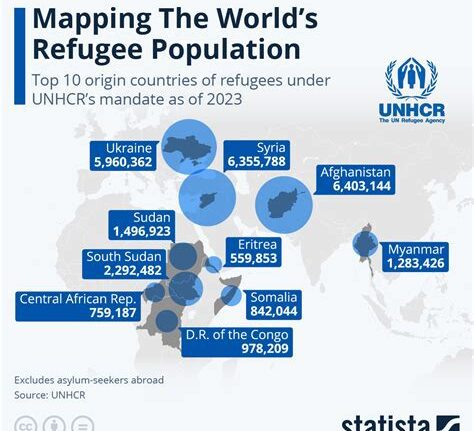A whirlwind of controversy surrounds the case of Kilmar Abrego Garcia, a Maryland man inadvertently expelled from the United States alongside a group suspected of gang affiliations. The saga began when Mr. Garcia, along with numerous others, found themselves on a one-way trip to El Salvador due to what was dubbed an “administrative error” by US Immigration and Customs Enforcement (ICE).
Legal Battle Unfolds
The legal tussle intensified as a federal judge, Paula Xinis, unequivocally declared the deportation illegal and demanded Garcia’s prompt return. Despite claims by the White House labeling him an MS-13 member, Garcia had been granted protection from deportation in 2019. His defense vehemently refuted any gang association allegations.
As speculation swirled about his alleged criminal ties, Simon Sandoval-Moshenberg, Garcia’s attorney, vehemently defended his client’s innocence. Emphasizing that his client was never charged with any offense in any jurisdiction, Sandoval-Moshenberg condemned the forced removal as an unjust act.
Political Backlash
The courtroom drama spilled into political arenas as Trump administration officials staunchly defended their immigration policies amidst criticism from Democratic quarters. Accusations flew back and forth between government representatives and judicial figures over jurisdictional boundaries and procedural missteps.
Amidst this high-stakes legal showdown, Judge Xinis stood firm in her stance for justice. She called out the authorities for flouting congressional mandates and disregarding established legal protocols in their hasty deportation decision.
Familial Anguish
While legal battles raged on, Kilmar Abrego Garcia’s family grappled with anguish and uncertainty over his fate. His wife Jennifer Vasquez Sura tirelessly advocated for his return to US soil while highlighting the emotional toll of separation caused by this bureaucratic blunder.
The narrative took unexpected turns when government lawyer Erez Reuveni admitted lapses in handling Garcia’s case during court proceedings. Acknowledging deficiencies in documentation and due process adherence cast a shadow of doubt on the legality of the deportation order.
Calls for Redress
The public outcry swelled as voices demanding accountability resonated across party lines. Democrats lambasted perceived injustices while urging corrective measures to rectify this grave oversight that uprooted Mr. Garcia from his life in Maryland.
In realms beyond legal jargon and political posturing lies a human story—of a man caught up in bureaucratic entanglements far removed from his daily existence. As Kilmar Abrego Garcia awaits repatriation to American soil per court mandate, questions linger about systemic flaws within immigration enforcement mechanisms.
This tale serves as a poignant reminder of the intricate interplay between individual lives and sweeping policy decisions—a reminder that behind every headline lies a human heart pulsating with hopes, fears, and dreams yet unrealized.









Leave feedback about this